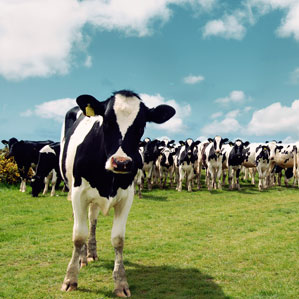No, China Is Not Building a “Human Cloning Factory”
The words “cloning factory” elicit a potent mix of imagery, almost none of it pleasant. Add “human” to the mix and you’ve got yourself a dystopian trifecta.

No wonder, then, that an Agence France-Presse story by Rebecca Davis about plans for the world’s largest cloning “factory” to be built in China and its potential for use in human cloning and genetic modification has generated a minor storm of breathless responses and credulous repackaging around the Web since its publication earlier this week. The right-wing fearmongers at Breitbart titled their hot take “China’s Cloning Crusade.” Slightly less xenophobic variations abound. What started as an unquestioning AFP piece spiraled, boosted by dual fears of biotech and China, into a story that largely ignores the kernel of interesting news in favor of the sensationalist headline.
The basics, as reported by the AFP: Chinese company Boyalife is planning a massive cloning facility in Tianjin, with the goal of producing one million cows by 2020 in order to supplement China’s meat supply. This is newsworthy enough. No one has made an earnest effort to use cloning as a way of supplementing meat production. As the FDA explains, the standard thinking is that the best use for cloning in livestock production is to help ensure the availability of good genes. You don’t clone a million cows to eat, it’s a waste of resources; you clone the 10 best cows in your herd so those genes can be spread around through traditional breeding. But Xu Xiaochun, Boyalife’s chief executive, seems convinced that his company will “become the world’s first purveyor of … genetically identical super-cattle that he promises will taste like Kobe,” Davis writes.
Xu is the real star of Davis’s story, and he seems to be the epicenter of the outsized claims that China is producing a massive human cloning facility. Cattle, Davis writes, “are only the beginning of Xu’s ambitions.” He wants his factory to produce horses and dogs as well.
And then the passage that launched a thousand headlines:
Boyalife is already working with its South Korean partner Sooam and the Chinese Academy of Sciences to improve primate cloning capacity to create better test animals for disease research.
And it is a short biological step from monkeys to humans — potentially raising a host of moral and ethical controversies.
“The technology is already there,” Xu said.
To be fair, he’s not wrong—the technology to clone humans has existed for quite some time. Medical Daily has an excellent feature by Dana Dovey, laying out the current state of human cloning. “[T]he science behind the idea is quite clear,” she writes, “with all research suggesting the practice is possible. Scientists have already cloned human embryos and many believe creating fully developed humans is the next step.”
In a bit of understatement, Davis clarifies that “the firm does not currently engage in human cloning activities … it has to be ‘self-restrained’ because of possible adverse reaction.” Emphasis mine.
I do feel some suspicion at the idea of “self-regulation” when China seems willing to engage in biotech firsts that the rest of the world is still wringing its hands over. It’s demonstrated that it’s willing to push the genetic technology envelope with the first gene-edited dogs (see “First Gene-Edited Dogs Reported in China”).
There’s also irony in the fact that this news comes during the same week as the International Summit on Human Gene Editing convened and recommended a moratorium on experiments in genetically modifying the human germ line. China’s “murky” stance regarding this genetic technology is one of the reasons it was the first nation to perform experiments modifying human embryos, as our own Antonio Regalado notes in his coverage of the summit.
To be clear, genetic engineering is not the same thing as cloning. Cloning doesn’t involve any changes, only replication. Many of the ethical concerns overlap, however. It’s possible the statement from the summit will put the kibosh on any efforts to clone humans for several years to come.
Bottom line: the only things that have definitely been revealed are that (1) Boyalife has an ambitious plan for a factory to clone cows in an unprecedented effort to produce cloned meat for consumption and (2) Xu Xiaochun is not shy about his more controversial ambitions.
There are a lot of genuinely stunning developments and thorny ethical quandaries in genetic technology (again, see Antonio Regalado’s coverage, here, here, and here) — we don’t need to put the cloned horse before the cart.
Keep Reading
Most Popular
Large language models can do jaw-dropping things. But nobody knows exactly why.
And that's a problem. Figuring it out is one of the biggest scientific puzzles of our time and a crucial step towards controlling more powerful future models.
The problem with plug-in hybrids? Their drivers.
Plug-in hybrids are often sold as a transition to EVs, but new data from Europe shows we’re still underestimating the emissions they produce.
Google DeepMind’s new generative model makes Super Mario–like games from scratch
Genie learns how to control games by watching hours and hours of video. It could help train next-gen robots too.
How scientists traced a mysterious covid case back to six toilets
When wastewater surveillance turns into a hunt for a single infected individual, the ethics get tricky.
Stay connected
Get the latest updates from
MIT Technology Review
Discover special offers, top stories, upcoming events, and more.